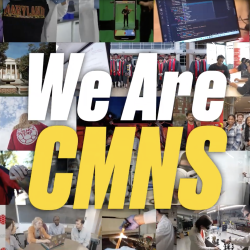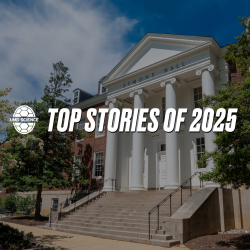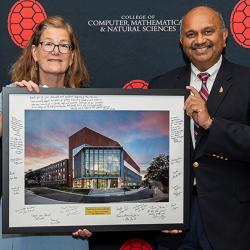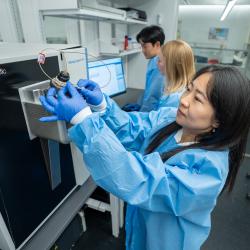Career Q&A with Biochemistry and Biological Sciences Alum Angel Obiorah
Counsel from the Reed-Yorke Health Professions Advising Office helped Obiorah (B.S. ’24) get into the M.D./Ph.D. program at Washington University in St. Louis.
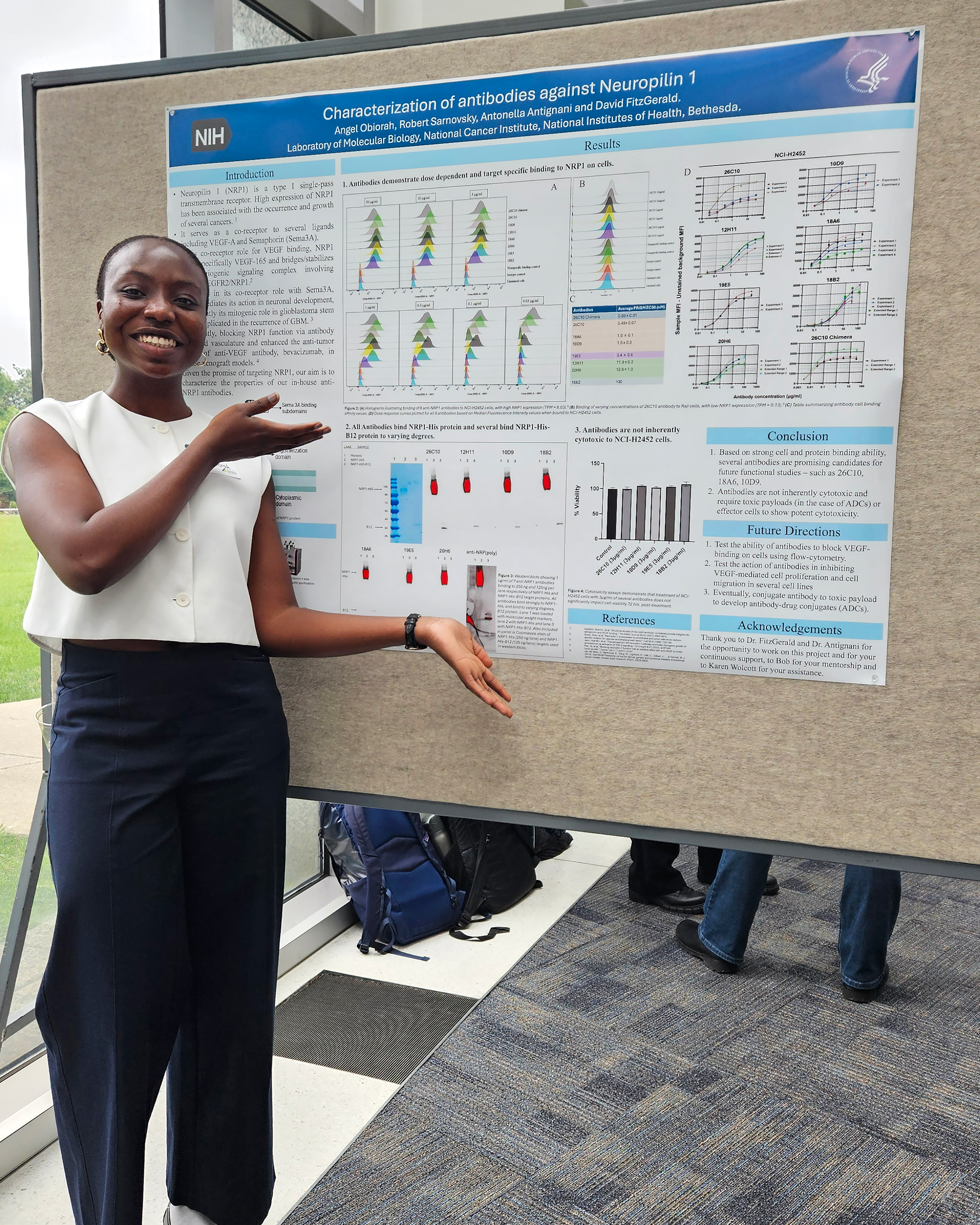
Why did you decide to study both biochemistry and biological sciences at UMD, and what inspired you to pursue medical school?
I started college as a biological sciences major specializing in cell biology and genetics. Like all pre-med students, I took the organic chemistry series. In CHEM231: Organic Chemistry I with Dr. Lee Friedman, I discovered that I genuinely loved chemistry. I was fascinated by concepts like chair conformations and chair flips, and understanding why certain functional groups reacted first or preferentially really clicked with me.
When I moved on to CHEM241: Organic Chemistry II with Dr. Lyle Isaacs, I enjoyed that class even more. My growing interest in organic chemistry led me to add biochemistry as a second major, which was easy enough because there was significant overlap between the biological sciences and biochemistry course series.
Picking up a second major in biochemistry was one of the best decisions I made in college. I got to take some amazing classes and learn about nucleic acids, physical chemistry and advanced organic chemistry. I also stayed fully engaged with the Department of Cell Biology and Molecular Genetics in the Honors Program and absolutely loved BSCI422: Principles of Immunology.
How have you taken advantage of opportunities on campus to pursue your career goals?
One of the most rewarding experiences during my undergraduate years was conducting research in the Department of Bioengineering with Dr. Steven Jay. That experience truly brought research to life for me and helped me envision a future as a physician-scientist.
I also really enjoyed being actively involved in the Departments of Cell Biology & Molecular Genetics and Chemistry & Biochemistry. Serving as a teaching assistant for BSCI222: Principles of Genetics was especially meaningful—I loved meeting new students and helping them navigate the course material. Participating on committees in the Department of Chemistry and Biochemistry gave me the opportunity to connect with both faculty and fellow students, which I found incredibly fulfilling. All of these experiences led me to choose a path where I could pursue medicine, conduct research and teach, which ultimately led me to apply to M.D./Ph.D. programs.
What kind of medical school application guidance and one-on-one feedback did you receive from the Reed-Yorke Health Professions Advising Office (HPAO)?
I completed and submitted the initial packet application, and shortly afterward had a one-on-one meeting with [HPAO Director] Wendy Loughlin. She told me I was a strong candidate, which gave me the confidence to move forward with my application that cycle. I also met with Wendy to discuss my school list and reached out to her whenever I found myself overthinking—when I was worried I had made a mistake in my primary application, for example.
Through HPAO, I was also able to connect with alumni who had matriculated into various Medical Scientist Training Program (MSTP) programs. They were incredibly helpful during my interview preparation, even reviewing some of my primary and secondary essays. Their insights and support made a big difference in helping me feel more prepared and confident throughout the process.
What excites you most about your M.D./Ph.D. program?
I’m currently in phase one of the M.D. program at Washington University in St. Louis, and I’m most looking forward to clinical immersions—three-week immersions into different medicine specialties. I’m also truly looking forward to beginning graduate school in about a year and a half and diving into some of the exciting research going on here at WashU.
What advice do you have for fellow Science Terps who are interested in pursuing medical school?
Absolutely pursue medical school. If you don’t feel ready yet, that’s okay—take your time and focus on strengthening the areas where you feel less confident. But ultimately, don’t let that stop you. A journey of a thousand miles begins with a single step, so take it one step at a time. Try not to get overwhelmed by all the prerequisites or the extra things you think you need to do. Just keep moving forward.
CMNS students have access to advisors and programs tailored to their unique career interests in STEM fields. In this Q&A series, we spotlight how Science Terps capitalize on the resources, support and guidance that CMNS provides.
The Reed-Yorke Health Professions Advising Office uses a holistic, individualized approach to support students in their development as future health care professionals. Current students and alums interested in health professions can access the office’s resources.


